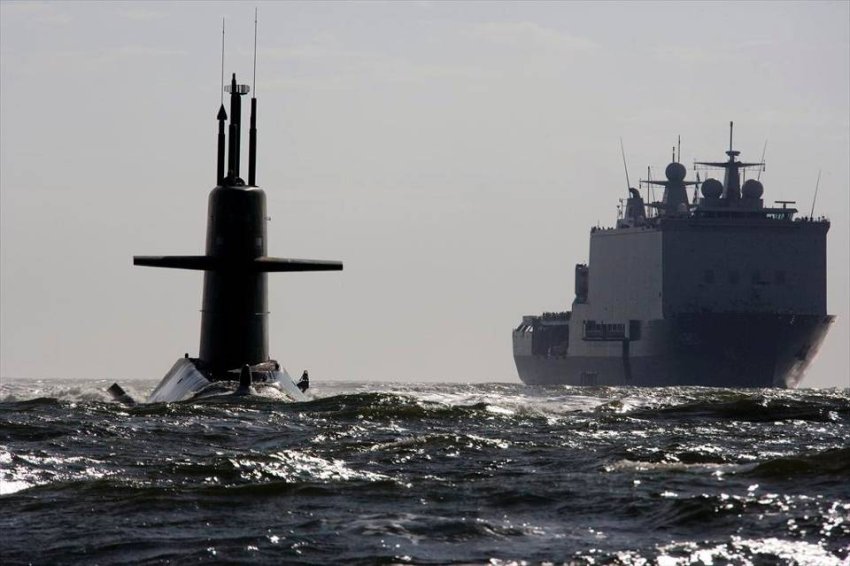
A year after then-Prime Minister Scott Morrison signed Australia up to the AUKUS “security” treaty, the United States and British partners are providing more information about the secretive weapons arrangement.
Among other things, it involves a scandalous amount of public money being spent on buying nuclear-powered submarines from the US or Britain.
US Rear Admiral Scott Pappano warned that it would overstretch US industrial capacity to build the Australian-commissioned submarines at a recent forum hosted by the US arms industry-funded Mitchell Institute Aerospace Studies.
This contradicts the claim by Peter Dutton, former defence minister and now Coalition leader, that Australia could get two US-built Virginia-class nuclear submarines by 2030.
Pappano also cast doubt on whether the British could build them in the time frame the Australian authorities are talking up. Supply chain manufacturing issues, he said, have slowed the production of such weapons down.
Morrison was in such a rush to announce AUKUS last September, as part of his failed pre-election bid, that little work had been done on the logistics of exactly how Australia would acquire its first nuclear-powered submarine fleet.
Australia doesn’t have the expertise to build them; either the US or Britain is needed. An 18-month study has had to be set up to work out the details and report back by the end of 2023.
Critics of AUKUS said Australia was manoeuvring to get around the Nuclear Non-Proliferation Treaty, which bans non-nuclear states from acquiring nuclear technology.
While the submarines will not carry nuclear weapons, AUKUS allows Australia, a non-nuclear weapons state, to enter a select club of rich nations with access to weapons-grade enriched uranium to power military submarines.
It is reckless and dangerous.
It is also very, very expensive. Apart from the estimated cost of $170 billion to buy eight nuclear-powered subs, another $45 billion is being spent on Hunter class fast frigates, built by British BAE Systems in Adelaide. Rival Spanish shipbuilder Navantia has offered to undercut BAE with additional air warfare destroyers, to be ready by 2030. That offer is being weighed by the government’s defence strategic review.
British Secretary for International Trade Anne-Marie Trevelyan, on a visit to talk up a new free trade treaty, also spruiked the two countries’ abilities to develop “clean energy”. She said AUKUS has “effectively given the country permission to talk about nuclear technology” and that Australia has an “opportunity” to talk about “nuclear power”.
Dutton is also arguing that nuclear power has to be part of the “transition to cut emissions” and that Australia can no longer be “technology agnostic”. As the uranium spot price soars, he has commissioned an internal party review.
The AUKUS pact pushes Australia in the wrong direction on so many fronts. Preparing for a war with China is madness, as is spending billions of dollars on nuclear-powered submarines and expanding uranium mining in a country awash with benign, renewable sources of energy.
Anti-war networks are organising to oppose greedy weapons manufacturers’ and politicians’ march to a new war and are reaching out to a new generation of climate activists, unions and civil society groups.
We cannot sit back and watch while the profit-driven ruling class takes the world to the brink. If you agree, become a supporter of Green Left and help keep not-for-profit activist media alive by making a donation to our Fighting Fund.
[Pip Hinman is active in the Sydney Anti-AUKUS Coalition, which is holding a one-year anniversary protest and vigil on September 16 at 5.30pm at Sydney Town Hall.]